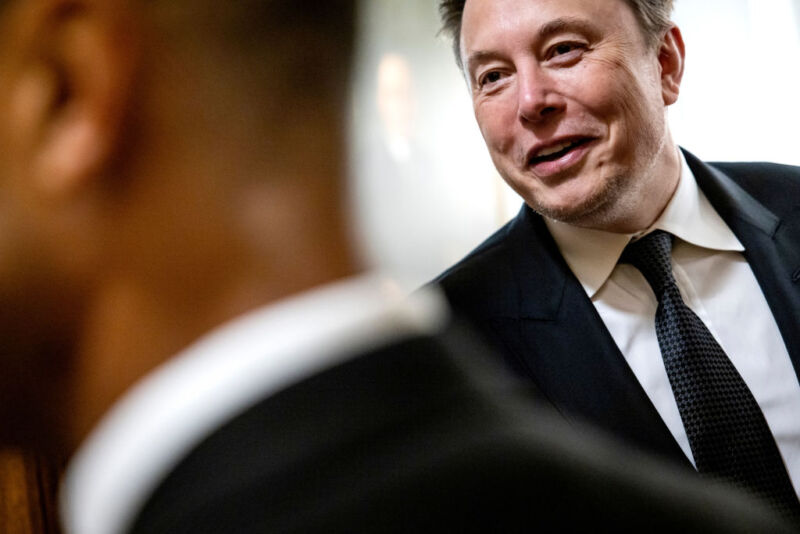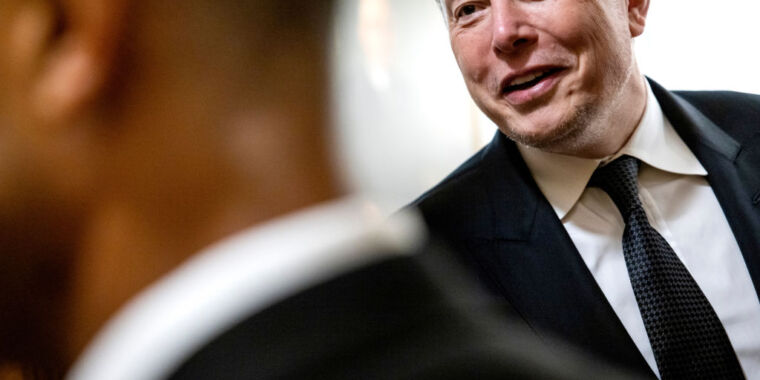
Elon Musk's battle against Media Matters for America (MMFA), a watchdog group he largely blames for an ad boycott that sank Twitter/X's revenue, has raised an interesting question about whether a judge who owns Tesla stock can reasonably be perceived as biased when considering a lawsuit targeting the tech billionaire.
In a court filing Monday, MMFA attorneys argued that “undisputed facts — including statements from Musk and Tesla — expose Tesla shareholders' interest in this matter.” The watchdog said any outcome of the lawsuit would likely have ramifications for Tesla's finances, and that's a problem because there's a possibility the judge in the case, Reed O'Connor, owns Tesla stock.
“X cannot dispute the public association between Musk — his persona, business practices, and public statements — and the Tesla brand,” MMFA argued. “That association would lead a reasonable observer to ‘have doubts’ about whether a judge with a financial interest in Musk could judge this case impartially.”
It's still unclear whether Judge O'Connor actually owns Tesla stock. But after the MMFA legal team uncovered disclosures showing that he did last year, they argued that fact can only be clarified if the court views Tesla as a party with a “financial interest in the outcome of the case” under Texas law — “however small.”
To make those facts clear, MMFA is now arguing that X should be ordered to add Tesla as an interested party to the lawsuit. A source familiar with the matter told Ars that this would most likely result in a dismissal of the case if O'Connor did indeed still own Tesla stock.
“If X were to be required to disclose Tesla, it would at most mean that judges who own shares in Tesla, Musk's only publicly traded entity, would have to recuse themselves from future cases in which Musk himself can be shown to play a central role in the dispute,” MMFA argued.
Ars could not immediately reach an attorney for X Corp for comment.
However, in X's objection to the request to add Tesla as an interested party, X maintained that “Tesla is not a party to this case and has no interest in the subject matter of the litigation, as the business relationships at issue relate only to X Corp.'s contracts with X's advertisers.”
X called MMFA's motion “baseless” and accused MMFA of strategizing to have Judge O'Connor disqualified so they could engage in “forum shopping” after MMFA received “negative rulings” on motions to suspend the investigation and dismiss the case.
As for whether a judge who owns Tesla stock can be considered impartial when reviewing Musk-focused cases, X argued that Judge O'Connor was just as obligated to deny an improper motion for recusal, should MMFA go that route, as he was to grant a proper motion.
“Courts are 'unwilling to establish a rule requiring judges to recuse themselves from all cases that might even slightly affect nonpartisan companies in which they own stock,'” X argued.
Recently, judges have recused themselves from cases involving Musk without explaining why. In November, a previous judge in the same Media Matters case mysteriously recused himself, with The Hill reporting that it was likely the judge’s “impartiality could reasonably be questioned” for reasons such as a financial interest or personal bias. Then, in June, another judge ruled that he was not qualified to hear a dismissal case brought by former Twitter executives without giving “a specific reason,” Bloomberg Law reported.
If there is a recusal in the MMFA lawsuit, it would be a rare example of a judge clearly disclosing a financial interest in a Musk case.
“The simple question is whether Musk’s statements and conduct relevant to this case affect Tesla’s stock price, not whether they are the only factor affecting it,” MMFA argued. “At the very least, there is a serious question whether Musk’s highly unusual management practices mean that Tesla should be disclosed as an interested party.”
The parties expect a ruling on the MMFA motion in the coming weeks.

